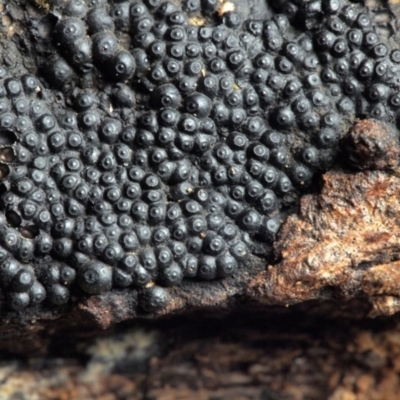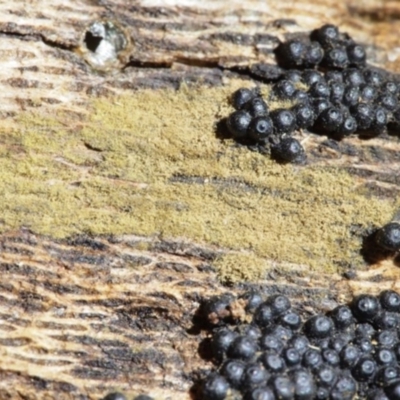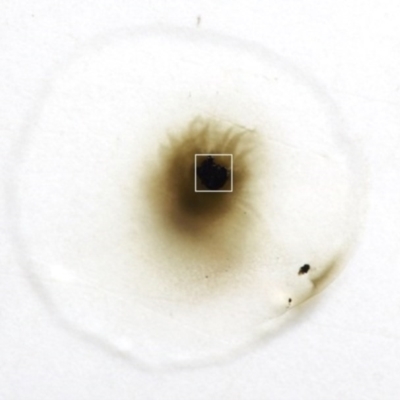Annulohypoxylon
The fruit bodies are more or less hemispherical, generally black and under a millimetre in diameter (frequently about half a millimetre). However, the fruit bodies appear in large groups ('glued' together so as to form what might be taken for a single structure) and such groups are easy to see with the naked eye. Most commonly the glued-together fruit bodies form a flat sheet that looks very much like a miniature cobblestone pavement. Such a composite structure is called a stroma. While the 'cobblestone pavement' stroma is common, within the genus you also find stromata that are discoid, cushion-like or close to spherical.
Each fruit body has a minute apical beak, in which there is a central channel though which the spores are released. In the genus Annulohypoxylon that beak (or ostiole) sits above the general level of the stroma and almost always in the middle of a flattened circular area (as if someone had sliced through the top of a hemisphere and stuck a small pimple on the cut surface).
Annulohypoxylon is very similar to Hypoxylon and was formerly considered a subgroup of the latter genus. Hypoxylon fruit bodies are also equally small, more or less hemispherical and appear in stromata of various forms. However, in Hypoxylon the stroma is usually coloured when mature and the fruit bodies lack the flattened circular area and the protruding ostiole.
The stromata of both genera are found on wood, mostly on dead wood.
Gallery
Regional distribution
Annulohypoxylon is listed in the following regions:









